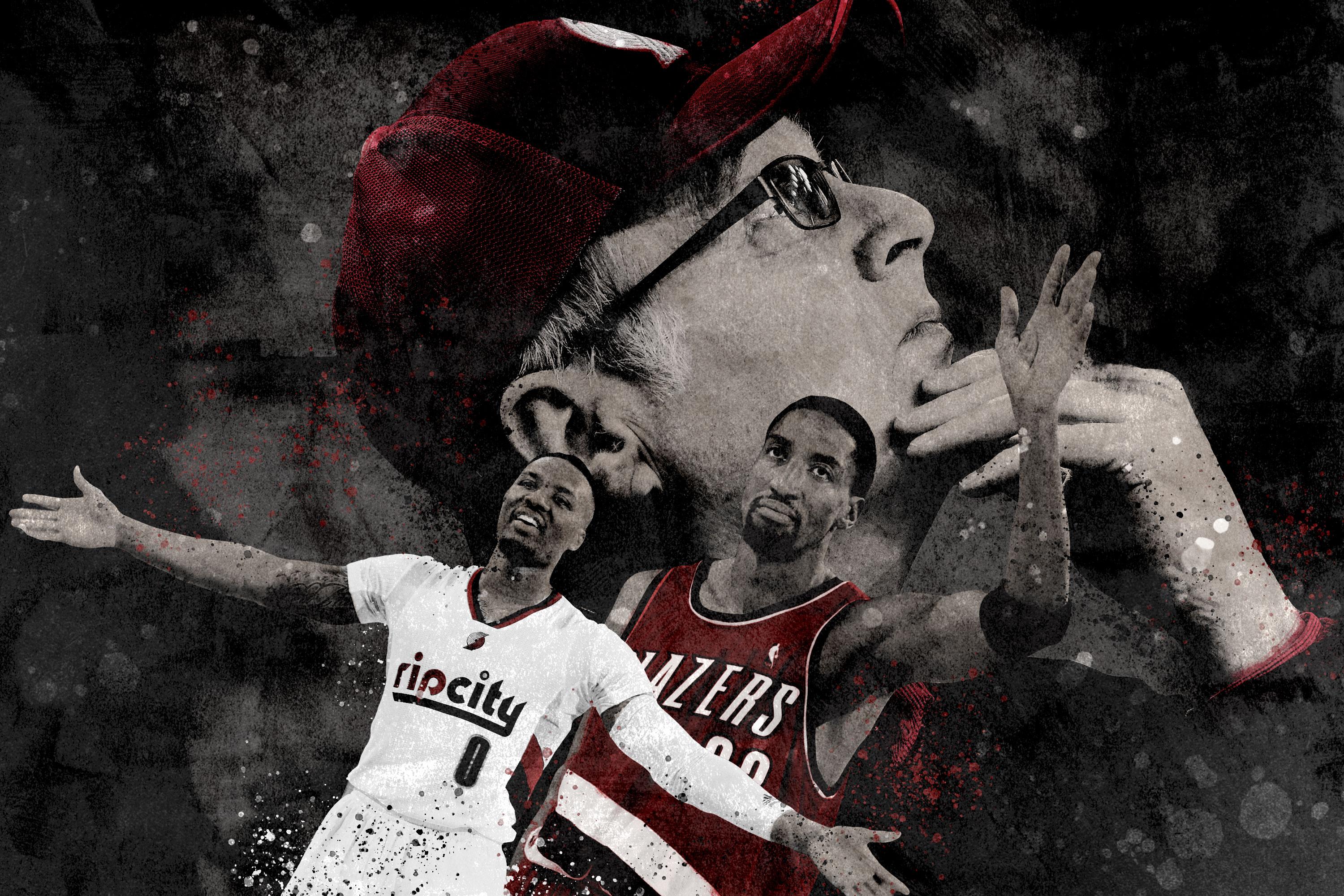
There are two big news stories swirling around the forest moon of Portland, Oregon, right now and, as tenuous as it might seem, I can’t help but think of them as connected. On Saturday night, a loose coalition of far-right yutzes brawled in the streets of the Rose City with a group of antifascists — each side battering the other with bare fists and bear mace. I’d love to tell you that I’m shocked that this altercation happened in the city where I grew up, but I cannot. This may surprise those who have come to know Portland as a coffee-roasting, whimsical-doughnut-exporting, twee-sketch-comedy-inspiring haven for people who have a car only so they have a place to put their Elizabeth Warren bumper stickers. And it is that, but it’s also a complicated place. Portland is both the city that earned the nickname “Little Beirut” by vociferously protesting the visits of the first president Bush, and it’s also a haven for white supremacists, skinheads, and the Ku Klux Klan. The state of Oregon flies with her own wings, but those wings stretch from one blistering extreme of the spectrum of humanity to the other.
On Monday afternoon, it was announced that the owner of the Portland Trail Blazers, Paul Allen, had died at the age of 65. He made no secret of his battle with non-Hodgkin’s lymphoma, and the swells and recessions of that struggle saw him go from a Rubenesque Ewok of a man to something more vulnerable and frail. Allen cofounded Microsoft, and because of that, amassed the massive fortune of a modern-day Mansa Musa and proceeded to spend that money buying super yachts, donating to pivotal brain research and neurology studies, funding the GOP, founding museums, and, in 1988, buying the Portland Trail Blazers (and later the Seattle Seahawks and a stake in the Seattle Sounders, but I’m from Portland, so I’m not even going acknowledge that and you can’t make me).
I’m not here to eulogize Paul Allen, though. If you want to hear about his alleged Jimi Hendrixesqe guitar virtuosity or his friendship with Bill Gates, you’re in the wrong place. I didn’t know the guy and I’m not a journalist. I’m a Trail Blazers fan, and for all but four years of my life, Paul Allen owned my favorite team. I met him once, though only by the loosest definition of the word “met.” After a game, he walked by in an expensive sweater that didn’t look expensive, and I choked out the words “thanks for owning the Blazers” — which is a deeply silly thing to say to someone, like telling Jon Hamm “thanks for having a big penis.” I said it anyway, though, and I meant it. I was grateful that he owned the team. I was grateful that he spent like a sultan to lure quality NBA players to a small market that happened to be the whitest major city in America. I was grateful he kept the Portland Trail Blazers in Portland, when our regional rivals departed for Oklahoma City. I was grateful to see Paul Allen perched underneath the basket at home games, wearing a team-branded dad hat so lame that he HAD to be rich. I was grateful that he owned my favorite team, and it hit me in the stomach like a Maurice Lucas elbow when he died.
There’s something truly weird about mourning a billionaire who had no idea that you even existed. That’s how it is with mourning all celebrities, I suppose. You feel a little bit like a fraud, like a bandwagon sad person. I was sad though. I am sad. It’s hard to figure out exactly why, but I think it might have something to do with that brawl in Portland.
We exist today in such a heightened state of aggravated separation. Whether these schisms are actually growing or just now receiving the harsh light of day, it seems like it’s only getting worse. These boiling points egged on by extremists only serve to highlight the more docile, dormant differences between us. When I go back to Portland, I see friends and family, but I also see strangers. I see gentrifiers with California-fat bank accounts and fifth-generation heroin addicts hanging on by a thread. I see people on fixed-gear bicycles screaming at motorists on fixed incomes on streets littered with potholes that probably won’t ever be fixed. I see women who secretly voted for Trump drinking at bars with men who secretly didn’t. I see hippies and hipsters and people who don’t have time to even think about self-identifying because they have to pick up their kid and drop them off at the Boys & Girls Club on MLK, and the only things that these people have in common is that they live in the Pacific Northwest and between October and June (hopefully) or April (at least) they root for the Trail Blazers. It’s probably shallow, and it’s almost definitely a distraction, but sometimes it’s nice to care a lot about the things that ultimately don’t really matter that much. Since 1988, for better or worse, Paul Allen gave us that distraction.
I was in the Rose Garden in 2014 when the clock read 0.9 seconds and Damian Lillard hit that unlikely shot that sent the Trail Blazers to the second round of the playoffs. I’ve never hugged so many strangers. They didn’t feel like strangers.
Ian Karmel is the host of the All Fantasy Everything podcast and the head writer of The Late Late Show With James Corden.